

Max Davies
2026 GWM Haval Jolion review
1 Hour Ago
The petrol Volvo XC40 range is now only offered with the less powerful B4 mild-hybrid engine. Is it still enough?
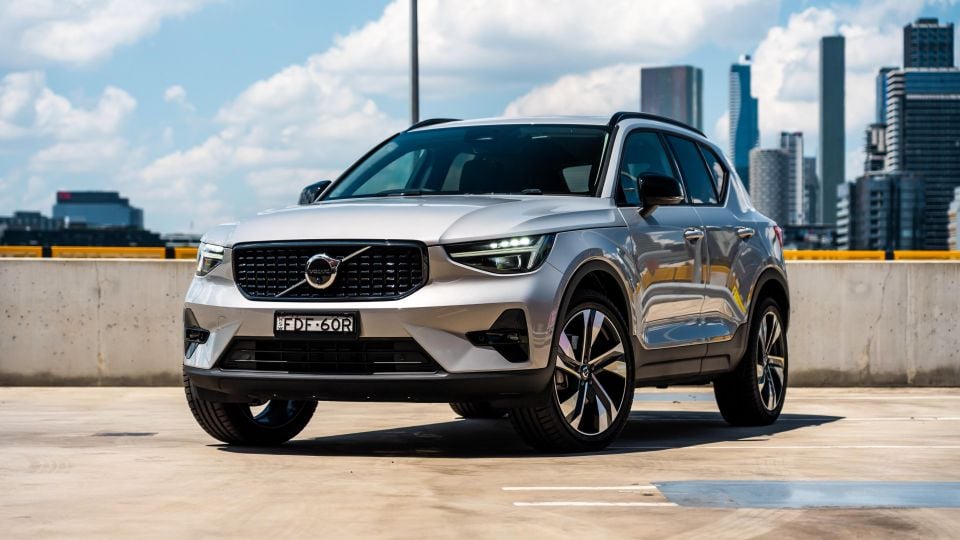
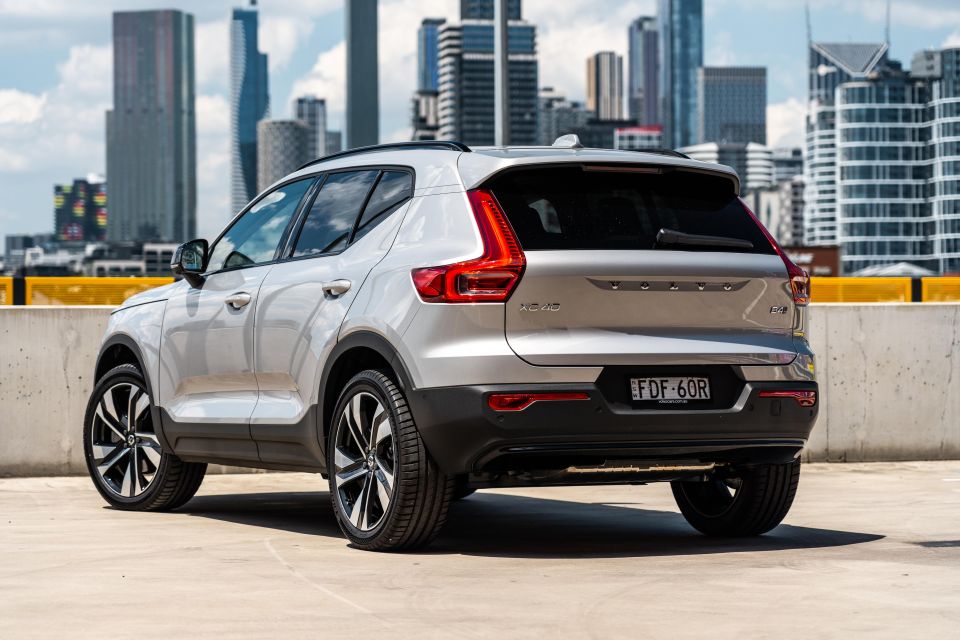

Quickly see how this car stacks up against its competition. Select any benchmark to see more details.
Where expert car reviews meet expert car buying – CarExpert gives you trusted advice, personalised service and real savings on your next new car.
Volvo is scaling up to become an all-electric brand in Australia by 2026.

As part of the process this has meant Volvo dropped the more powerful B5 mild-hybrid petrol engine from the XC40 range.
Instead the Swedish-Chinese carmaker has opted for the B4 mild-hybrid petrol engine to power the entire combustion-powered range. Both electric powertrains are still available.
On test here is the flagship petrol-powered 2024 Volvo XC40 Ultimate B4 Dark. This model was previously referred to as the Ultimate B5 Dark when it had the more powerful B5 mild-hybrid petrol engine.
Is this flagship combustion-powered Volvo XC40 still convincing with a less-powerful mild-hybrid petrol engine? Read along to find out.
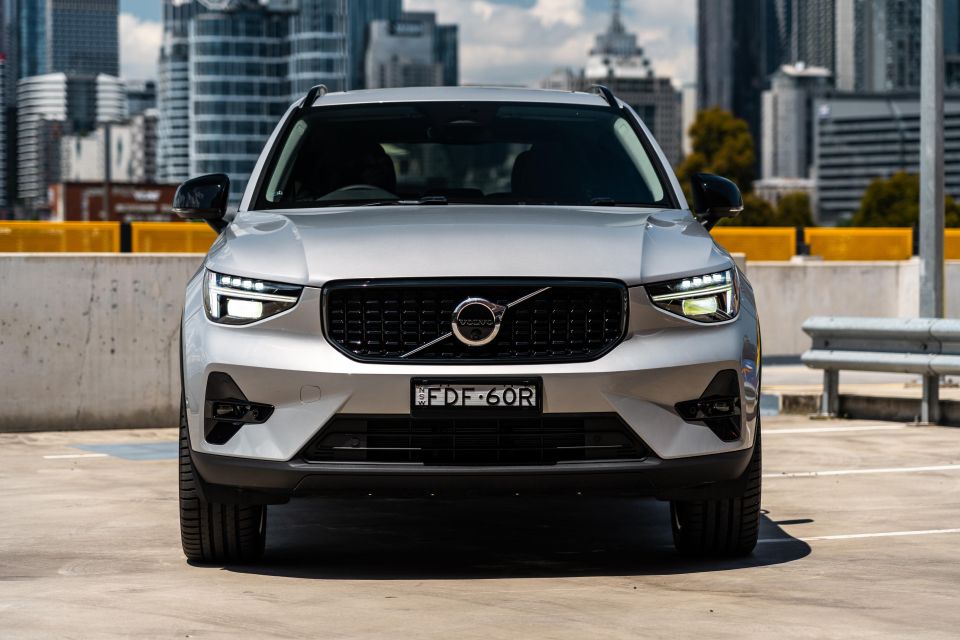
2024 Volvo XC40 pricing:
Prices are before on-road costs
To see how the XC40 compares with its rivals, line it up against its rivals using our comparison tool.
Buy your new car without the stress. It's fast, simple and completely free.
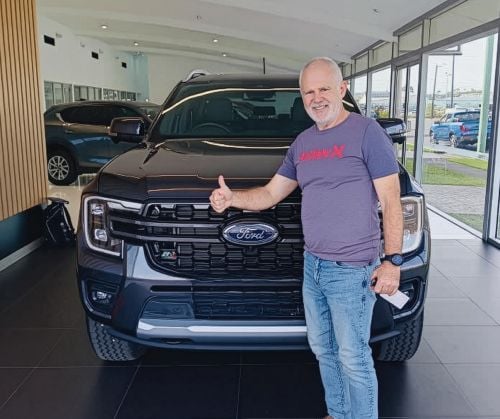
Great service from Travis and team, second time I have used this business would not hesitate to recommend them to anyone
Craig C.
Purchased a Ford Ranger in Sunshine Coast, QLD
CarExpert helped Craig save thousands on his Ford Ranger, now let us save you on your next new car.
Find a dealWalking up to the 2024 Volvo XC40 Ultimate B4 Dark, it’s a little hard to differentiate it from the more powerful MY23 Ultimate B5 Dark. The main change has happened under the bonnet.
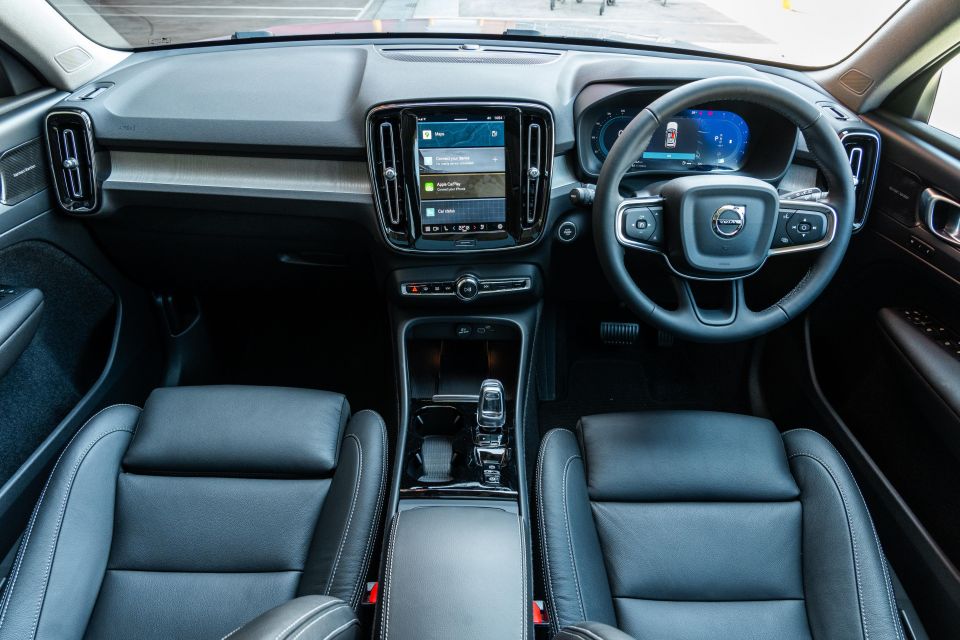
Hopping in the XC40 has a sought-after elevated seating position, like a number of crossovers, that allows you to have good visibility around the car and also feel in command.
Our tester was equipped with the leather-accented charcoal upholstery which is a no-cost option. This also adds driftwood accent trim panels, charcoal tailored steering wheel, as well as a crystal gear shifter from Orrefors.
Despite being leather-accented, the XC40’s seats look and feel like they have a fair bit of faux leather on them. There was also a faint plasticky smell that lingered for the majority of the time I had the car. That’s not something that I’d correlate with a premium vehicle.
Both front seats have electric adjustment with heating. The latter is incredibly helpful on cool Melbourne days, though I’m surprised you can’t even option ventilated seats at all.
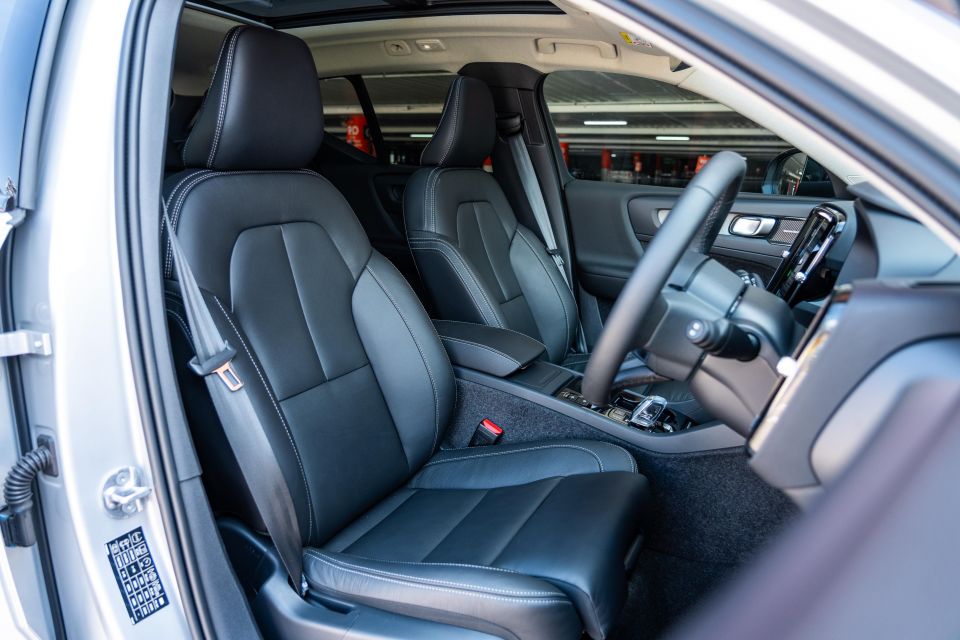
The driver’s seat has plenty of thigh support, which is aided by a manually extendable cushion extended. It felt like I was sitting on a La-Z-Boy recliner.
Despite this, the driver’s seat is a little flat and hard, which made driving for longer periods of time a bit uncomfortable. It also lack side bolstering, which at some points made me feel like I was falling out of my seat around corners.
Ahead of the driver is a faux leather-wrapped steering wheel that doesn’t feel anywhere as nice as one wrapped in proper leather. The steering wheel is still a nice size and has an outer rim that isn’t too thick.
All the buttons on the steering wheel are logically laid out and feature clear icons that make them easy to understand. The buttons also have a satisfying click action.
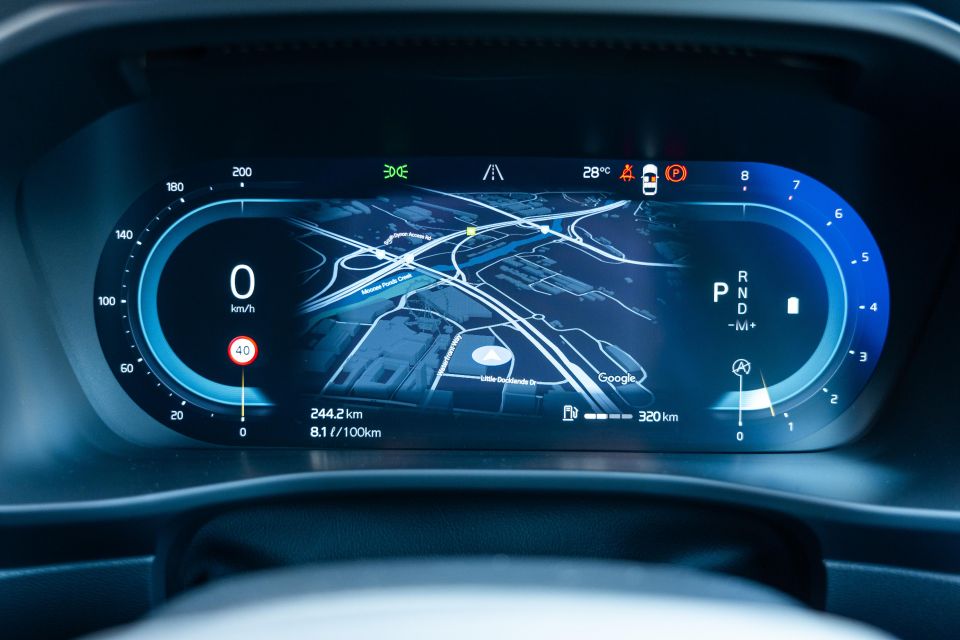
The same can be said for the indicator and wipers stalks positioned behind the steering wheel. Both have a satisfying thwack, although they have a number of icons and functions that make them a little confusing at first.
There’s a 12.0-inch digital instrument cluster as standard that’s both clear and high-resolution. Despite this the interface is largely black and a little lifeless. I understand Volvo is going for minimalism, but the same look could be achieved with two analogue dials and a smaller instrument cluster screen.
One of the few things you can change on the digital instrument cluster is whether the satellite navigation map is on or off. You can also bring up your trip statistics. That’s about it…
Moving across is a standard portrait-oriented 9.0-inch touchscreen infotainment system that has Google built-in. This means it has features including the Google Assistant, Google Maps, as well as access to the Google Play store.

The related Polestar 2 also has a infotainment system with Google built-in, though the screen in it is notably larger (11.2-inch v 9.0-inch). This makes the XC40’s touchscreen look a touch dated in comparison.
The touchscreen itself, like the digital instrument cluster, is high-resolution. It also appears to have plenty of processing power, which means it boots up quickly upon startup and new pages load fast.
Given the touchscreen is portrait-oriented it feels like using an iPad strapped to the dashboard. The native Google built-in interface is also really intuitive to navigate and use.
A lot of the time I didn’t actively look to connect my phone using smartphone mirroring as all the functions I usually look for, including Google Maps and Spotify, were already baked in or available on the Google Play store.
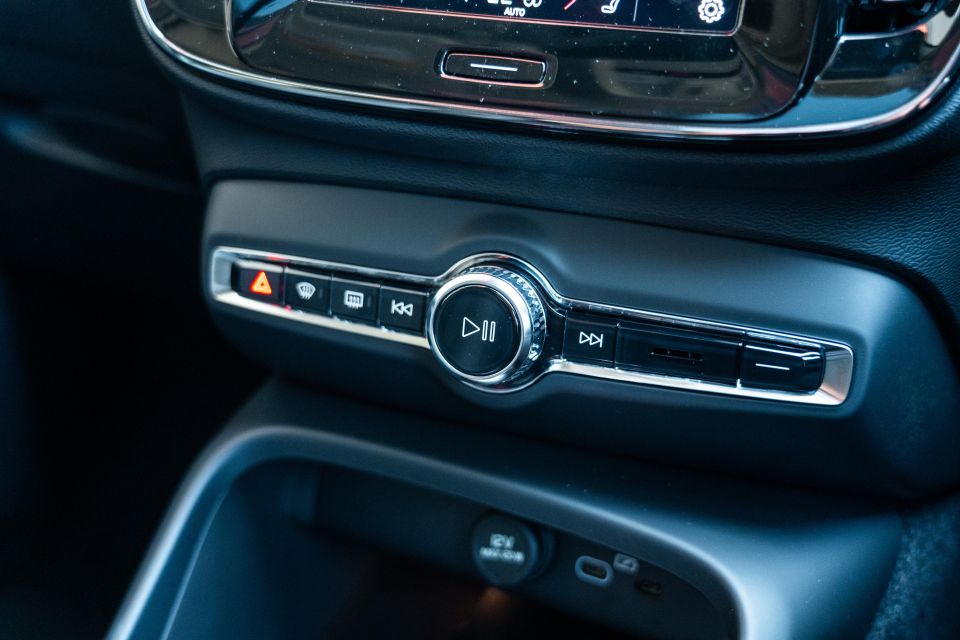
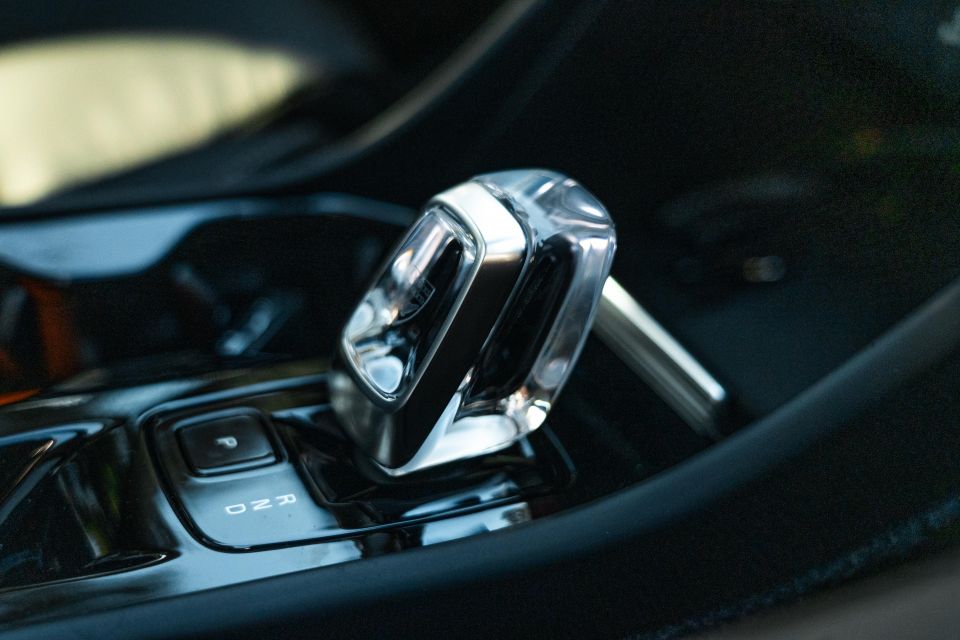
Speaking of smartphone mirroring however, the Volvo XC40 comes standard with wired Apple CarPlay only.
Like the majority of wired smartphone mirroring connections with my iPhone 15 Pro Max, I didn’t experience any dropouts whatsoever.
One gripe is all the climate control functions, including the operation of the heated seats and steering wheel, are altered using the touchscreen. You can use the Google Assistant, but for a lot of the time I’d much prefer having a physical button or dial.
There actually aren’t many physical buttons or dials in the XC40 at all. The main ones include a large volume knob with a play and pause button, a home button for the infotainment system, as well as smaller buttons for functions like the hazard lights and window defrosters.


Looking around the cabin there are some Scandinavian-looking and premium-feeling finishes including the vertical air vents, wooden dashboard inlays, metallic sections on the steering wheel, crystal gear shifter, and felt-lined door bins.
On the flip side however, there are a large number of harder plastics and piano black scattered around the cabin. The latter gets dirty and grimy really quickly, and it also gets scratched when you try to clean it.
Our tester was equipped with the optional glass panoramic sunroof that helps make the cabin ambience feel airier and lighter.
Although the rear doors themselves are large, the opening to get into the car isn’t. This meant I had to contort my legs getting both in and out.
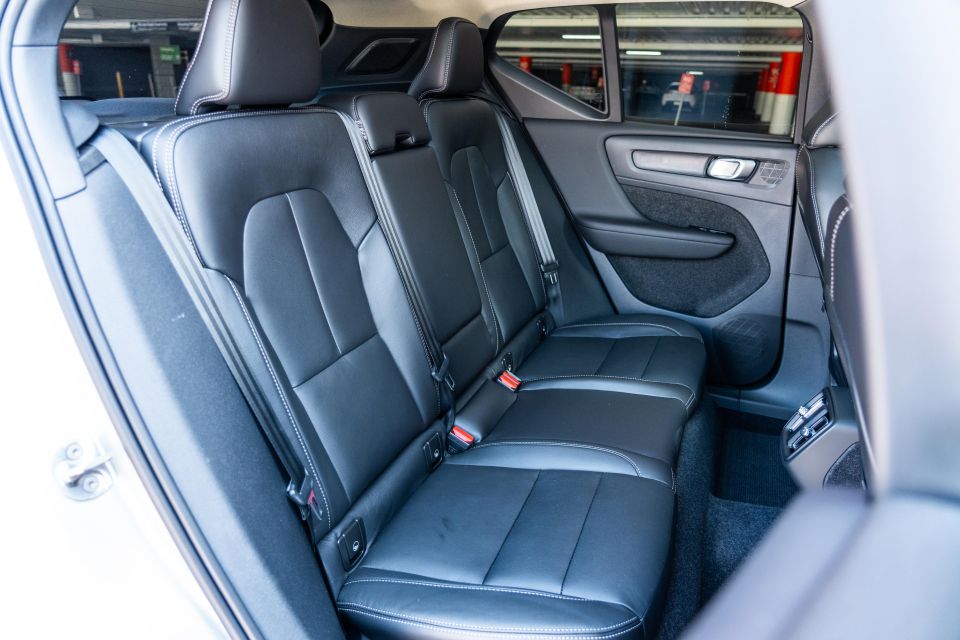
Once you’re in the second row there’s plenty of leg, head, and shoulder space. It’s strange but the second-row seats are also much squishier and comfortable than the front seats.
There is however a large transmission hump in the second row that makes the centre seat feel a little cramped.
Second-row amenities include heated outboard seats, USB ports, centre console-mounted rear air vents, as well as a fold-down rear centre armrest with cupholders.
Moving around the back of the XC40 there’s a power tailgate that opens and closely swiftly and quietly. Once the tailgate is open there’s plenty of usable boot space on offer. Volvo quotes an official boot capacity figure of 460 litres.
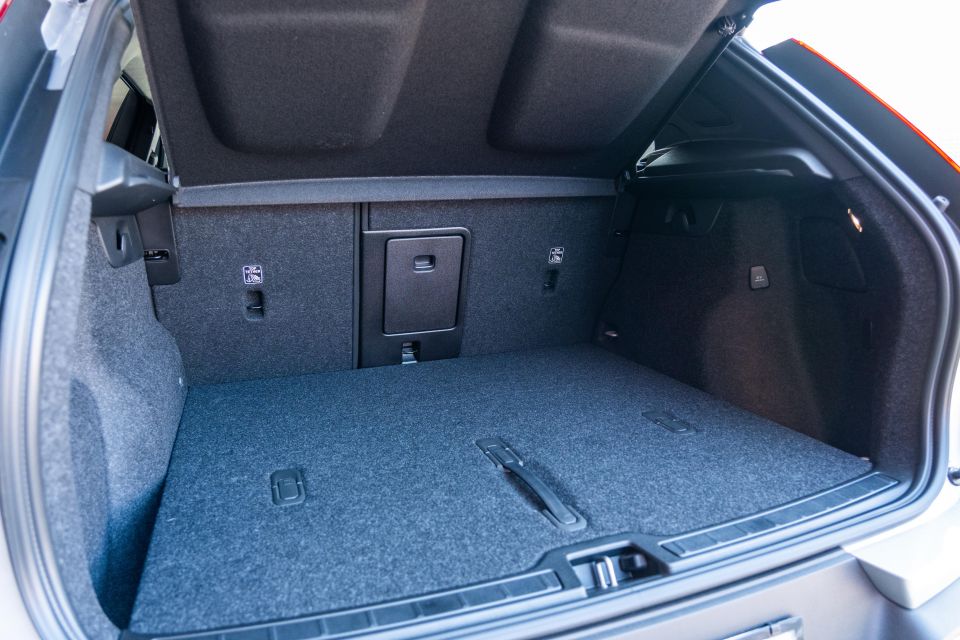
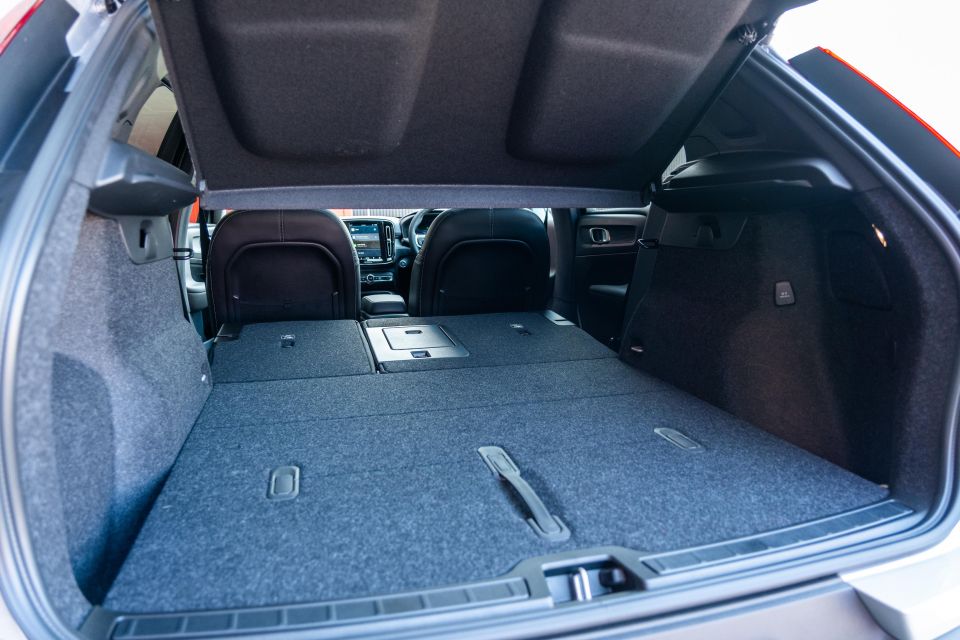
There are heaps of bag hooks in the boot, as well as a 12V socket and a handy light on the tailgate. The latter is really handy when you’re trying to load items into the boot at nighttime.
The last thing I’ll mention in this section is one of my favourite features in the XC40. The boot floor is able to fold upwards and create a divider with bag hooks. This means items won’t be sliding around as much as you drive around.
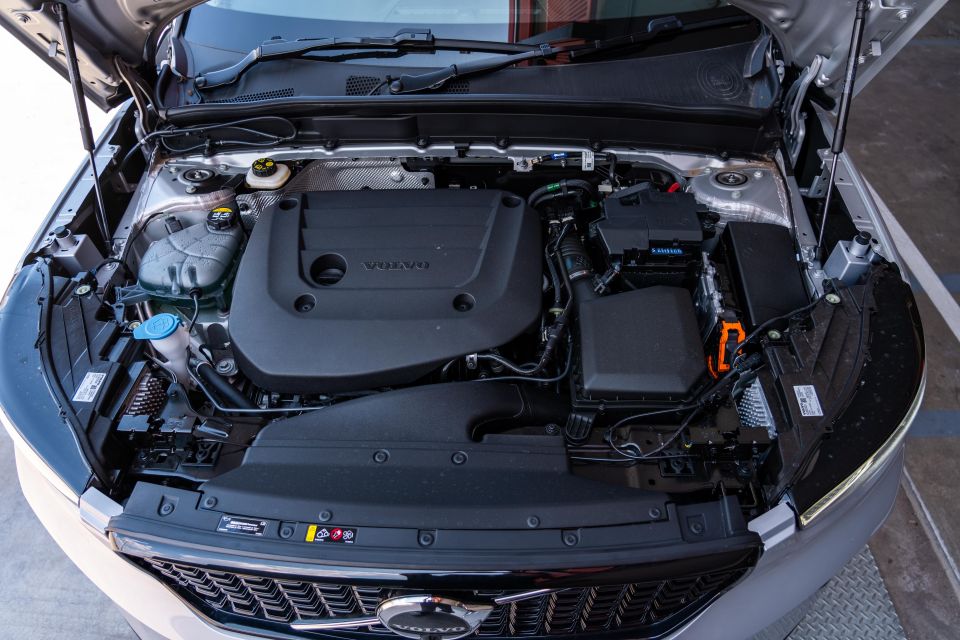
| Model | Volvo XC40 B4 |
|---|---|
| Engine | 2.0-litre 4cyl turbo petrol |
| Electrical assistance | 48V mild-hybrid system |
| Power | 145kW |
| Torque | 300Nm |
| Transmission | 8-speed automatic |
| Driven wheels | All-wheel drive |
| Weight | 1729kg (tare) |
| Fuel economy (claim) | 7.3 litres per 100km |
| Fuel economy (observed) | 8.1 litres per 100km (250km mixed driving) |
| Fuel tank size | 54 litres |
| Fuel requirement | 95 RON |
To see how the XC40 compares with its rivals, line it up side-by-side with any car you want using our comparison tool.
Starting up the Volvo XC40 Ultimate B4 Dark is as easy as pressing the start button positioned between the digital instrument cluster and touchscreen infotainment system.
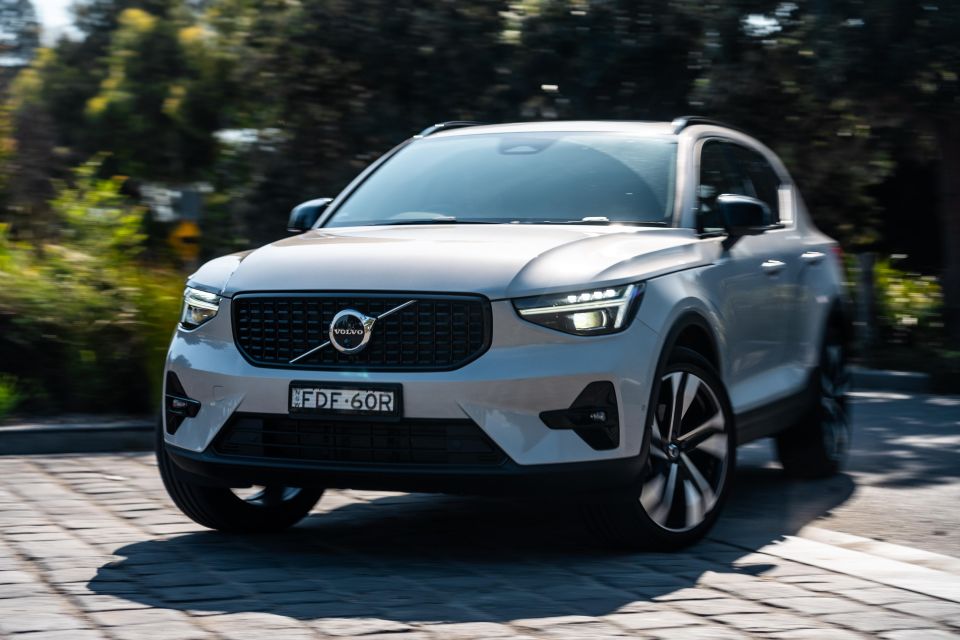
When you do press the start button, the 2.0-litre turbocharged four-cylinder petrol engine fires up seamlessly and quietly thanks in part to the 48V mild-hybrid system which includes a starter-generator.
Setting off can sometimes be a little jerky as the handbrake doesn’t automatically disengage when you select either reverse or drive. It only disengages when you accelerate beyond a certain point or turn it off yourself.
Once you do eventually get moving don’t expect the XC40’s B4 mild-hybrid petrol engine to blow you away at all. With 145kW and 300Nm, these outputs sound more than adequate on paper, but when combined the car’s porky 1.7-tonne tare weight it spells for tardy acceleration.
At the traffic lights plenty of cars will be taking off quicker than you. Cars with less power and torque will strangely be going quicker than you unless you give it more of the beans. Even then, there feels like there’s only just enough on tap.
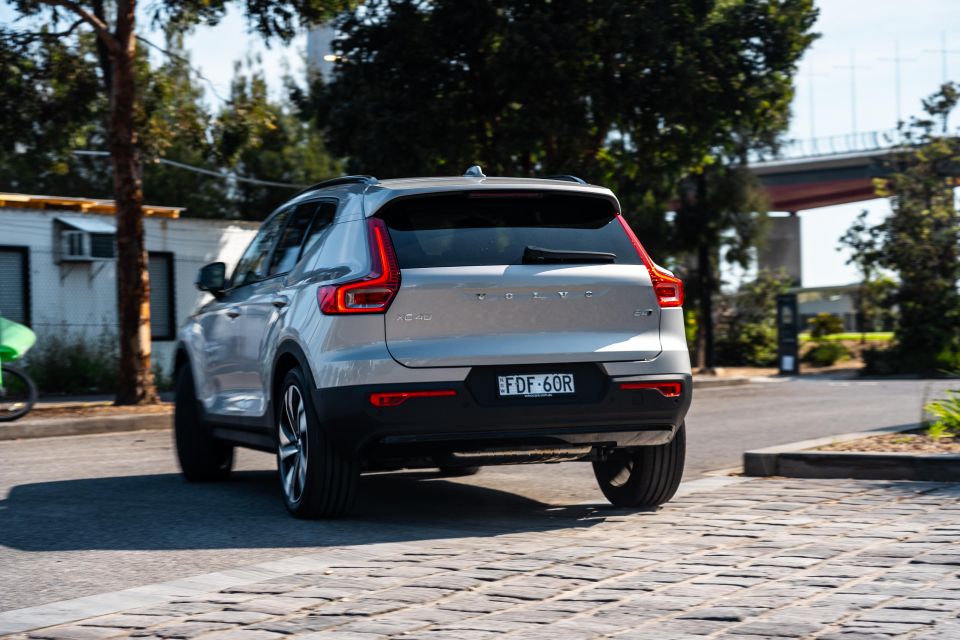
Where expert car reviews meet expert car buying – CarExpert gives you trusted advice, personalised service and real savings on your next new car.
When accelerating from a standstill the first two gears can rev out to 3000rpm pretty easily. This is jarring given peak torque is delivered from just 1500rpm.
The eight-speed torque-converter automatic transmission does the job and feels a little more natural than a dual-clutch transmission at low speeds, though at points it can feel a bit like an elastic band.
On the flip side when you’re slowing down the brake pedal has a lot of play in the first half of its travel and quickly bites. This means it can hard to tell how much pressure you need to apply to come to a stop smoothly.
The steering in the XC40 is incredibly light which makes low-speed manoeuvrability easy. The crossover also has a small turning circle. As standard the XC40 Ultimate B4 Dark comes with front and rear parking sensors, dipping side mirrors, as well as a surround-view camera.
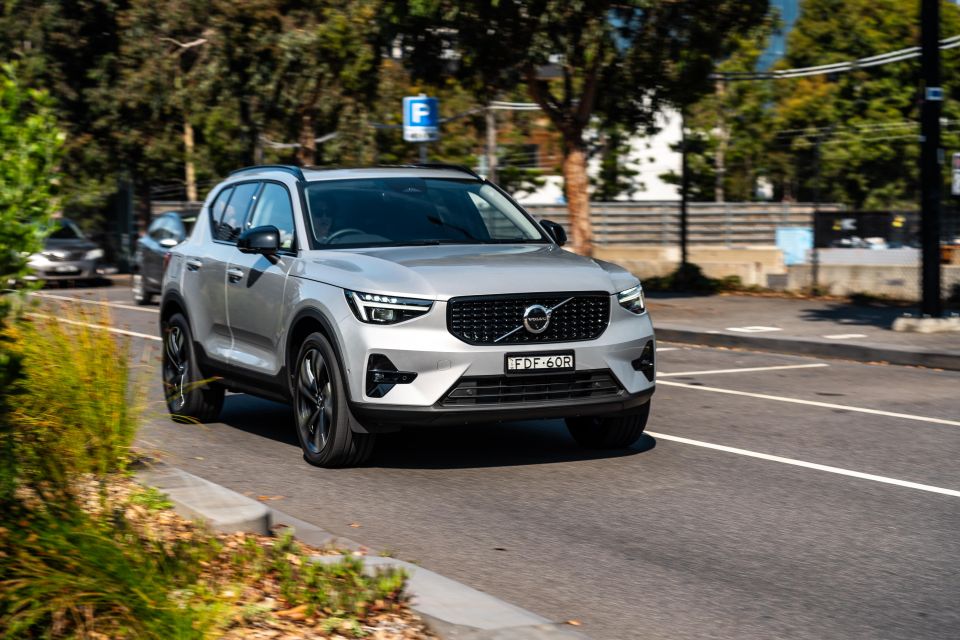
The latter of these defaults to a birds-eye view which can be a little tricky to properly gauge how far you actually are from obstacles. There are icons on the touchscreen that allow you to toggle between different views but it’s a little fiddly.
Around town the XC40 Ultimate B4 Dark’s suspension is very resolved and compliant. Going over speed bumps are a breeze, though it would likely be even better if the car was equipped with smaller alloy wheels than the 20-inch units fitted as standard.
Even in everyday driving the XC40 has dynamic driving qualities. Sure there’s a little bit of body roll, which is synonymous with crossovers, but the car feels like it wants to be driven quickly.
That’s why it’s so disappointing the B4 mild-hybrid petrol engine can’t hold up its end.
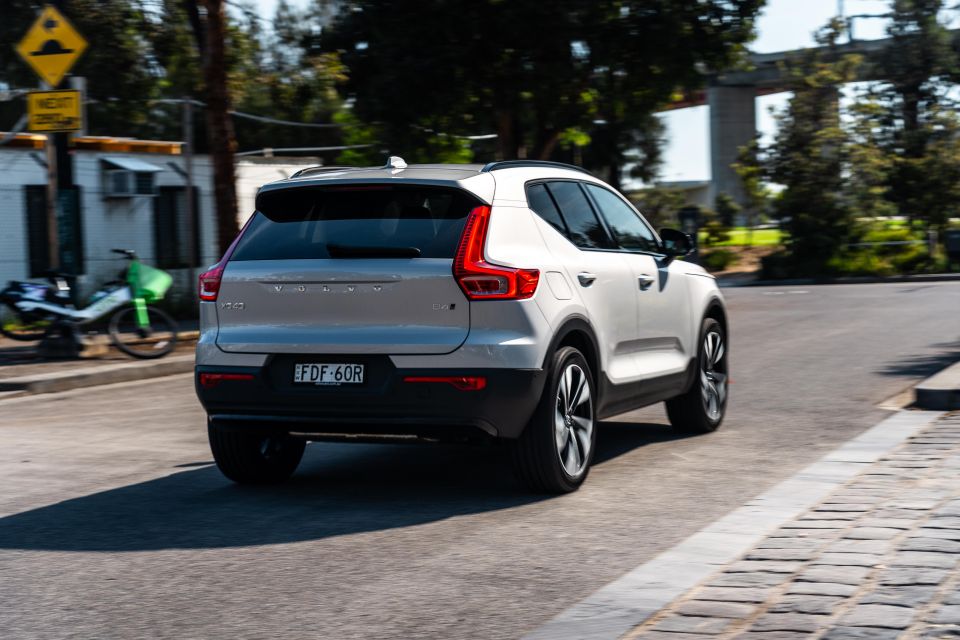
Building up the speed in the XC40 takes a bit of time and work but eventually happens. The engine usually makes a bit of a commotion when asked to accelerate to highway speeds and it’s not really the best sound ever.
Once you’re at highway speeds the revs are kept low and the car finds a groove. A bit more power would be nice though as when you want to overtake the car feels like it’s running out of puff.
On the safety front, the XC40’s adaptive cruise control system does like to initially brake when it detects a car ahead of you, but it eventually sorts itself out.
The cruise control can also creep over the set speed by up to 5km/h before braking, which is a little too lenient if you ask me. In many instances I found myself pumping the brakes to bring my speed back under the limit and then resetting the cruise control.
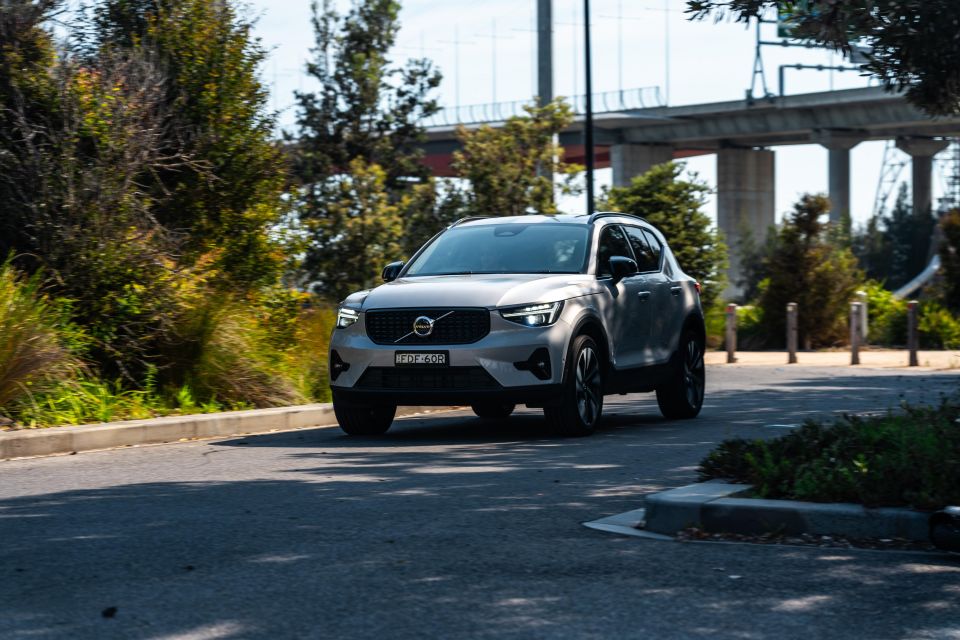
The XC40’s lane-keep assist function can get a really handy feature when you’re travelling along clearly marked highways and freeways, though on many roads I found the system pinballed within the lane. This didn’t necessarily inspire confidence and for the most part I drove the car with this function turned off.
Lastly, the Pixel LED headlights equipped to our tester are fantastic. When you have the low-beams turned on they have a handy turning function which illuminates around a corner. This makes spotting a pedestrian stepping out onto the road around the corner at nighttime, for example, at lot easier.
The Pixel LED headlights also have an adaptive high-beam which makes rural and regional driving so much easier. You don’t need to worry about dipping your lights when there’s an oncoming car and can instead keep an eye on whether an animal could stray onto your path.
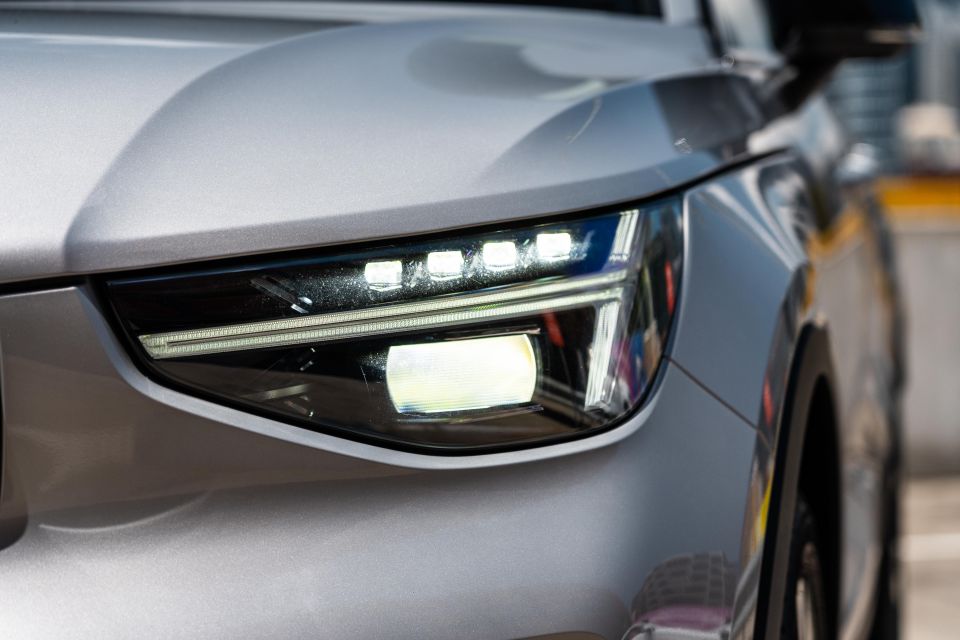

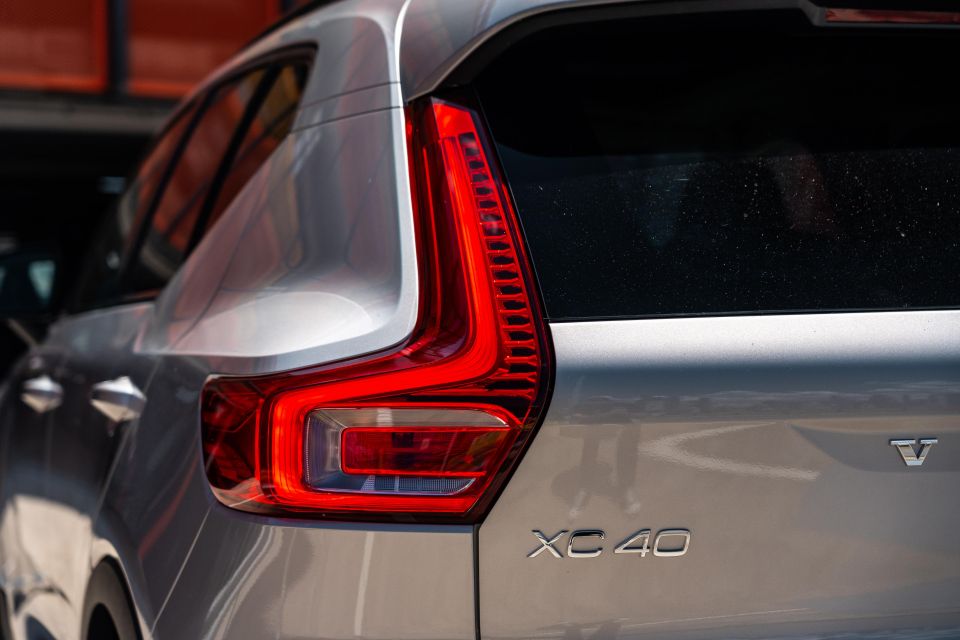

XC40 Plus B4 highlights:

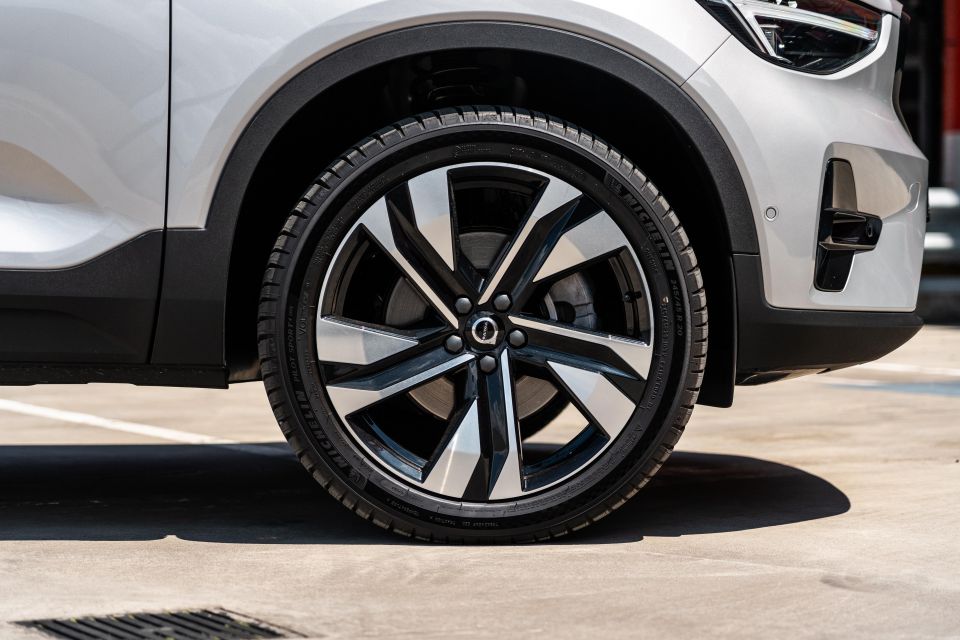
XC40 Ultimate B4 Bright adds:
XC40 Ultimate B4 Dark adds:

Lifestyle package: $2700
Single options:
The Volvo XC40 wears a five-star ANCAP safety rating based on 2018 Euro NCAP tests.
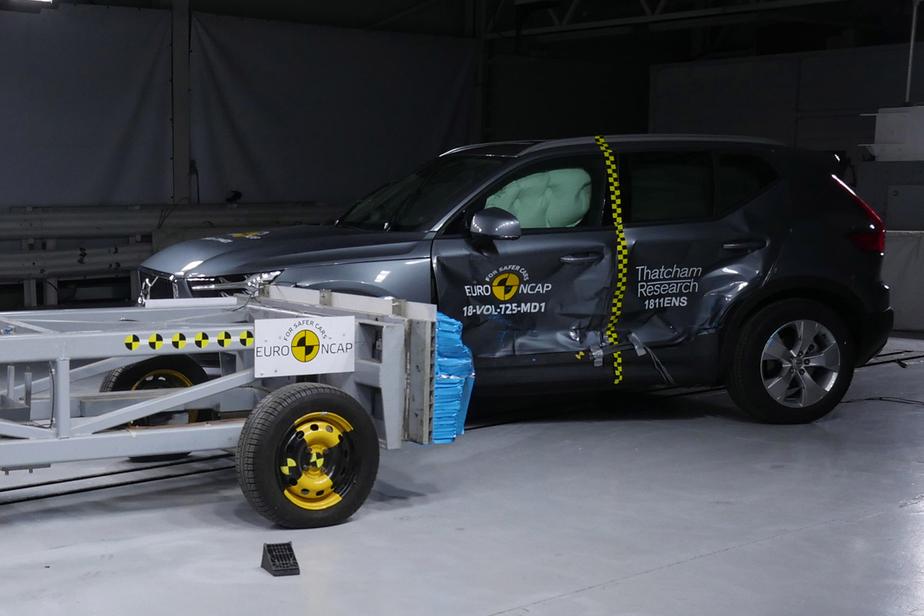
All models received an adult occupant protection score of 97 per cent, child occupant protection score of 84 per cent, vulnerable road user protection score of 71 per cent and a safety assist score of 78 per cent.
Standard safety features include:
The Ultimate B4 Bright adds a surround-view camera.
Volvo covers its range with a five-year, unlimited-kilometre warranty.
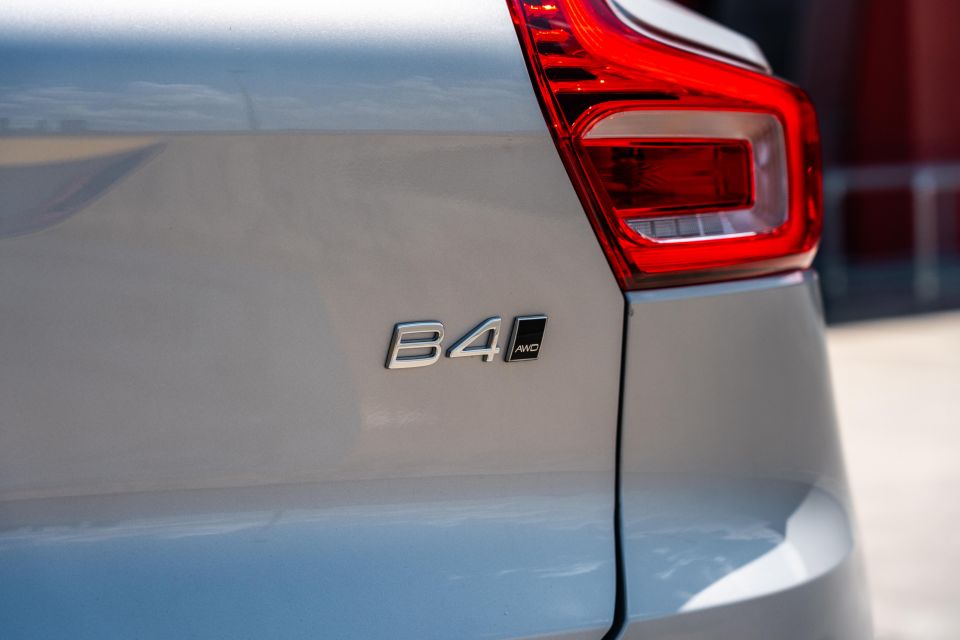
The XC40 is currently offered with a choice of three- or five-year service plans, priced at $1750 and $3000, respectively.
The Volvo XC40 is starting to get on in years now yet it still remains fresh amid an electric push for the Swedish-Chinese brand. The combustion engine range however is starting to seem like an afterthought.
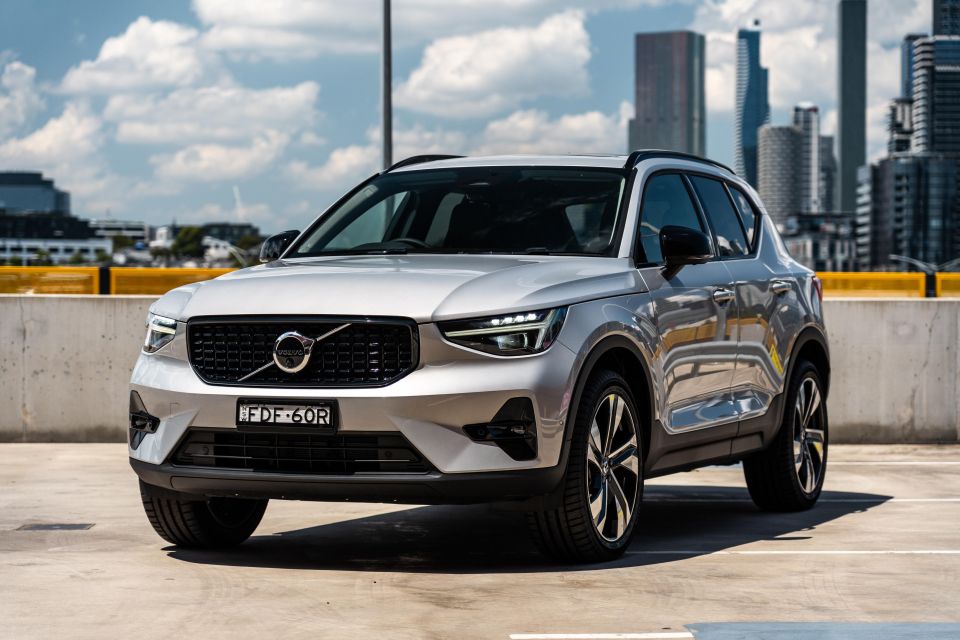
It’s a little disappointing Volvo has axed the more powerful B5 mild-hybrid petrol engine from the XC40 range. The B4 mild-hybrid petrol engine is fine, but you definitely need to work it to get the porky crossover moving at a brisk pace.
Despite being $2000 cheaper, it feels the XC40 Ultimate B4 Dark has lost its defining factor. When it previously had the B5 mild-hybrid engine it was the pick for those wanting a bit more power and torque.
I can see why Volvo has gone down this path however as it’s wanting to make its XC40 Recharge Pure Electric variants more attractive. Now if want more power you’ll need to step up to the electric single-motor rear-wheel drive variant (175kW/420Nm) or the dual-motor all-wheel drive variant (300kW/660Nm).
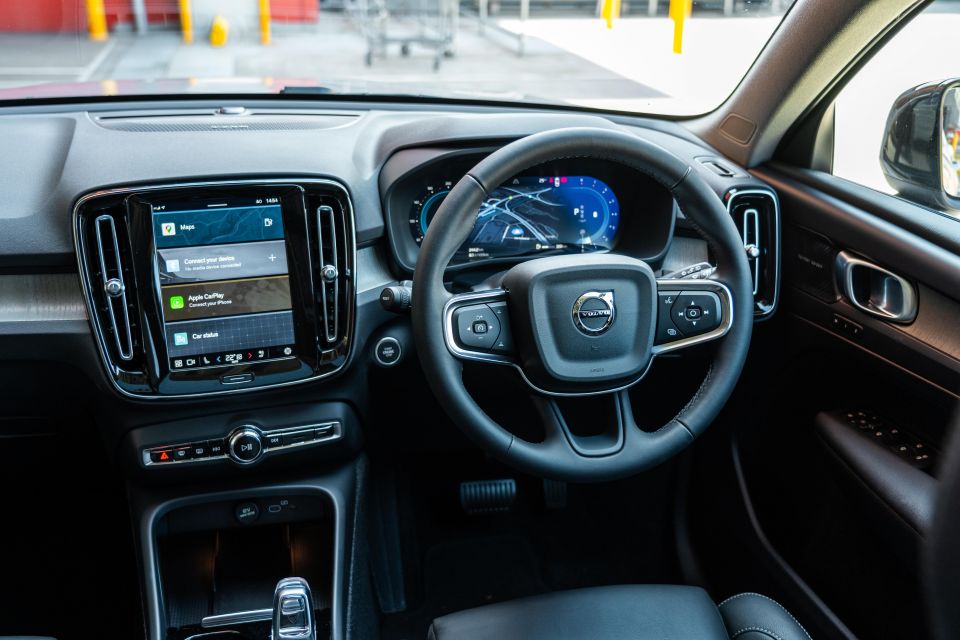
Both of these XC40 Recharge Pure Electric variants are considerably more expensive than the petrol-powered Ultimate B4 Dark on test here.
If you’re not willing to go electric and are wanting to stick with the petrol, you’d arguably be better off looking at the more affordable XC40 Ultimate B4 Bright or Plus B4 instead of the flagship Ultimate B4 Dark.
You won’t be missing out on much as both of these more affordable petrol-powered XC40 variants come with the majority of the features included in our tester.
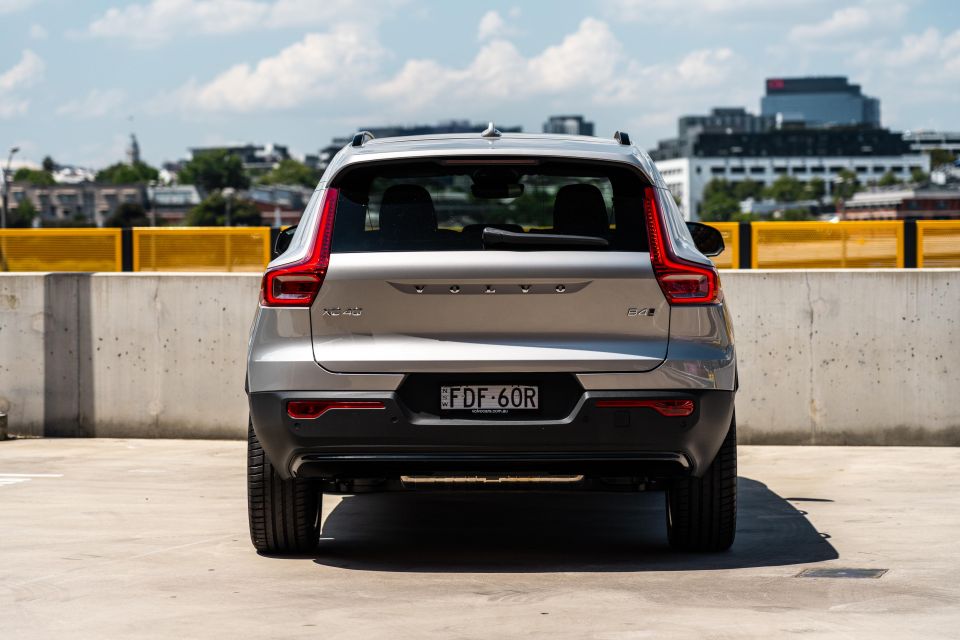
Click the images for the full gallery
BUY: Volvo XC40 MORE: Everything Volvo XC40
Where expert car reviews meet expert car buying – CarExpert gives you trusted advice, personalised service and real savings on your next new car.
Jack Quick is an automotive journalist based in Melbourne. Jack studied journalism and photography at Deakin University in Burwood, and previously represented the university in dance nationally. In his spare time, he loves to pump Charli XCX and play a bit of Grand Theft Auto. He’s also the proud owner of a blue, manual 2020 Suzuki Jimny.


Max Davies
1 Hour Ago


Damion Smy
9 Hours Ago
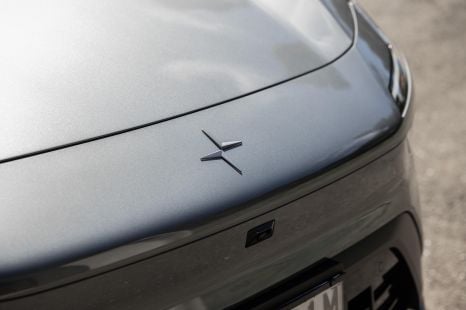

Damion Smy
10 Hours Ago
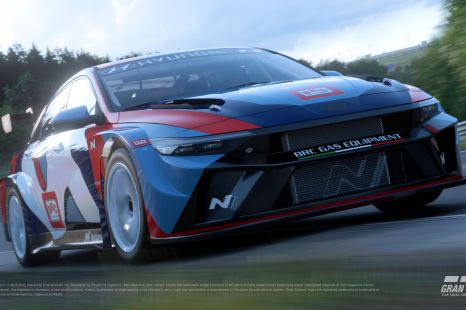

Damion Smy
12 Hours Ago
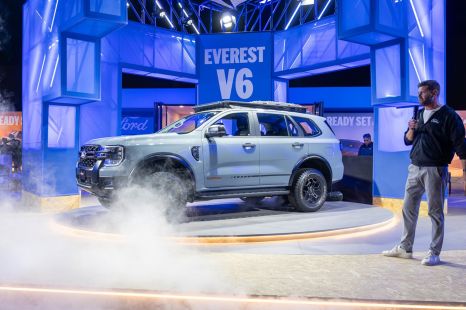

Damion Smy
14 Hours Ago


CarExpert.com.au
16 Hours Ago